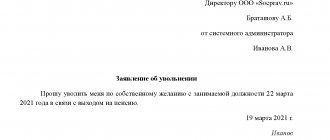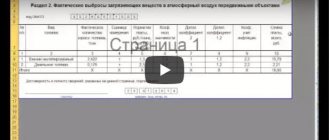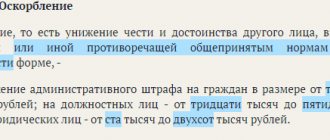New rules for crediting and returning overpayments
From October 1, 2021, the provisions of Federal Law No. 325 of September 29, 2019 will come into force, which simplify the procedure for offset or refund of overpayments of taxes. Until October 1, tax authorities can redistribute overpaid taxes only within the budget of one type. Federal tax goes to the federal budget, regional tax goes to the regional budget, local tax goes to the local budget. For example, by overpaying VAT, a federal tax, you cannot pay off a debt on property tax, a local tax.
Starting from October, it will be possible to offset overpayments against future tax payments or pay off debts for another tax without reference to the budget level. For example, due to the income tax overpaid to the federal budget, it is possible to pay off arrears or a fine to the regional budget for transport tax or to the local budget for land tax.
If there is a tax debt to any budget - federal, regional or local - it is impossible to return the overpayment of taxes in money. The debtor, due to the overpayment, is obliged to first pay off his obligations for taxes, fines and penalties (Clause 6 of Article 78 of the Tax Code of the Russian Federation).
The rules for offset and refund of overpaid insurance premiums remain the same. For example, overpayment of pension insurance contributions cannot be “spread” onto social or health insurance contributions (clause 1.1 of Article 78 of the Tax Code).
How does overpayment of taxes occur?
Overpayment occurs due to errors either by the organization itself or by the tax authority.
Taxpayers themselves are wrong:
- when calculating tax. Accounting may make a mistake when calculating the tax base, applying the wrong tax rate, or not applying tax benefits and deductions;
- when filling out payment orders for the payment of taxes, penalties, and fines. Any error in the BCC or tax amount results in an overpayment for one tax and an underpayment for another.
Overpayment may occur due to advance payments. For example, a company transferred advances for income tax during the year, but at the end of the year the tax turned out to be less than the amount of the transferred advances. So the company overpaid income taxes.
Tax inspectors may mistakenly collect taxes twice. This occurs when a tax, fine or penalty is unilaterally written off from a current account. For example, the taxpayer has already transferred taxes, but the money has not yet reached the tax office. And the Federal Tax Service writes off the amounts without acceptance. Then there may be an overpayment.
Note! Overpayment of taxes must be recorded on the organization’s front card with the Federal Tax Service. If, for example, a company transferred taxes through a problem bank, but they did not go to the budget, it will not be possible to offset or return them.
The courts believe that recognition of the obligation to pay a tax as fulfilled does not give rise to the taxpayer’s automatic right to return or offset the amount of such tax.
They confirmed that the taxpayer does not have the right to compensate for his losses at the expense of the budget (Determination of the Supreme Court of the Russian Federation No. 307-KG18-10845 of August 8, 2021).
How to find out about an overpayment
Both the taxpayer himself and tax inspectors can find overpayments of taxes. You can order a reconciliation report from the tax office or check your transfers in your personal account on the Federal Tax Service website. Within five working days after submitting the documents, tax officials must issue a reconciliation report and send it to the taxpayer.
If the tax authorities were the first to discover the overpayment, they are obliged to notify the organization - within 10 working days they must send a written message and indicate the date the overpayment was discovered (clause 3 of Article 78 of the Tax Code of the Russian Federation). The date of discovery of the overpayment is the day when the inspector discovered the excess for a particular tax. Regardless of whether the tax inspectorate informed the taxpayer about the fact of an overpayment or not, the overpayment can be disposed of within three years from the date of occurrence.
Taxes to the budget for the taxpayer can be transferred by any other person - an organization, an entrepreneur or a citizen without the status of an individual entrepreneur (paragraph 4, paragraph 1, article 45 of the Tax Code). But only the taxpayer himself has the right to return the excess or offset the payment. Third parties cannot do this (paragraph 5, paragraph 1, article 45 of the Tax Code).
How can you manage your overpayment?
If an organization or individual entrepreneur has identified an overpayment of taxes, then the excess can be offset against the debt, left in a personal account with the Federal Tax Service for future payments, or the money returned to the current account. Let's consider each point separately.
Credit for arrears
If there is arrears on other taxes, fees, fines, penalties, inspectors will first pay off the arrears to the budget through overpayments. The inspectorate independently decides which tax debt can be closed and informs the organization. But they can only dispose of overpayments that are no more than three years old.
An organization can independently submit an application for credit indicating a specific tax. It is advisable to reconcile the calculations with the budget before doing this. If the amount indicated in the application does not coincide with the data of the tax office, the tax authorities will return the application.
The tax office makes a decision on offset or refusal to offset overpaid amounts against arrears within 10 working days:
- from the moment the overpayment was discovered, if the organization did not apply to the inspectorate with an application for credit against a specific tax;
- from the date of receipt of an organization’s application for credit against a specific tax, if the organization has submitted such an application;
- from the date of signing the act of reconciliation of calculations with the budget, if the inspection and the organization carried out a reconciliation;
- from the moment the court decision comes into force, if the organization has achieved offset through the court;
- from the day following the day of completion of the desk tax audit, which took place without additional assessments;
- if a desk audit revealed violations - from the day following the day the decision entered into force.
Credit towards future payments
If there is no arrears, you need to send an application to the inspectorate for crediting money using the approved KND form 1150057. Applications for crediting taxes overpaid to regional budgets at the location of separate divisions of the organization can be submitted both to the tax inspectorate at the location of the organization and to the tax inspectorates at location of separate units.
The application deadline is within three years from the date of payment of the excess tax or contribution. The application must be accompanied by documents confirming the overpayment - a payment order or an updated declaration. The tax office must make a decision on the offset within 10 working days from the date of receipt of the application from the organization.
Overpayments cannot be counted against future payments of taxes, fees, penalties and fines by other taxpayers. Such offset of Tax Code is not provided (letter of the Ministry of Finance dated March 6, 2017 No. 03-02-08/12572).
Invalidity of the liquidation balance sheet
According to the legal position set out in Resolution of the Presidium of the Supreme Arbitration Court of the Russian Federation dated October 13, 2011 No. 7075/11, the presentation of a liquidation balance sheet that does not reflect the actual property status of the liquidated legal entity and its settlements with creditors must be qualified as failure to submit to the registration authority a document containing the necessary information.
FAS VSO, in Resolution No. A33-18667/2010 dated 05.08.2011, considered the following case. The company decided to voluntarily liquidate; during the audit, the tax service assessed additional fines and invited the company to pay them. However, the company did not pay off the fines, approved the liquidation balance sheet and submitted a package of documents to the registration authority (tax service) for state registration of liquidation. The Tax Service refused to register the liquidation due to the unreliability of the liquidation balance sheet. Let us recall that the application for state registration of a legal entity in connection with its liquidation in form P16001 [5] contains a special entry confirmed by the signature of the liquidator: “Settlements with creditors have been completed.” The company filed a lawsuit against the illegal actions of the tax service as a registrar. The court supported the position of the tax authorities on the following grounds:
- the requirements were sent to the taxpayer after the commencement of the voluntary liquidation procedure of this legal entity and the approval of the liquidator;
- at the time of drawing up the interim liquidation balance sheet, the company was notified that the tax authority had discovered facts indicating tax violations;
- no evidence has been submitted by the company to the tax authority;
- the company did not provide evidence of fulfillment of the obligation to pay the fine before drawing up the liquidation balance sheet, that is, the debt existed at the time of approval of the interim liquidation balance sheet. [6]
Refund of overpayment
To return money to the current account, the organization submits an application in the KND form 1150058 within three years from the date of the overpayment. To make a decision, inspectors have 10 working days from the moment they receive the application or sign the reconciliation report. After 5 working days, tax authorities are required to inform the organization or individual entrepreneur about the decision made (clause 9 of Article 78 of the Tax Code). After a month, return the overpayment to your bank account. If the taxpayer made a mistake and provided incorrect details, the refund will be processed after clarification.
Refund of overpaid taxes is a right, not an obligation, of the taxpayer. An organization or individual entrepreneur can waive their right, which does not contradict paragraph 6 of Art. 78 of the Tax Code of the Russian Federation (letter of the Ministry of Finance of Russia No. 03-07-11/63803 dated December 11, 2014).
Refinancing rate when calculating interest.
Clause 5 of Art. 79 of the Tax Code of the Russian Federation establishes that when calculating interest on the amount of excessively collected tax, the interest rate is taken equal to the refinancing rate of the Central Bank of the Russian Federation in force on those days.
As the Presidium of the Supreme Arbitration Court indicated, when determining the interest rate, the refinancing rate that was in effect on the days of violation of the compensation period, divided by the number of days in the corresponding year (365 or 366) should be applied (Resolution No. 11372/13).
Let us recall that from 01/01/2016 the value of the refinancing rate is equal to the value of the key rate of the Central Bank of the Russian Federation determined on the corresponding date. From September 19, 2016, the rate is 10.0% per annum (Information of the Central Bank of the Russian Federation dated September 16, 2016).
The formula used to calculate interest is:
P = Tax x Central Bank Rate / 365 x Dnfact, where:
P – the amount of interest accrued on the amount of excessively collected tax;
Tax – the amount of excess tax collected;
RateCB – key rate of the Central Bank of the Russian Federation;
Dnfact – the number of days for which interest is calculated.
If the overpayment is more than three years old
An organization can offset or return an overpayment within three years from the date of payment of the excess tax amount. The payment date is calculated differently. For example, for VAT, which is paid without advance payments, the three-year period will be counted from the date of transfer of the tax. And for income tax, which provides for advance payments, the period will be calculated from the moment of filing the declaration.
If the organization missed the deadline for filing an application, you can go to court. When considering a case in court, the limitation period of 3 years will be calculated according to the norms of civil, and not tax legislation. And the countdown of the period does not start from the moment of payment of the excess amount, but from the moment when the organization learned or should have known about it (clause 1 of Article 200 of the Civil Code). But you will have to prove that you learned about the overpayment later than it occurred. And it's not that simple.
Tax claims not recognized by the liquidator are collected in court
In the Resolution of the Federal Antimonopoly Service No. A23-1737/08A-14-83 dated January 28, 2009, the court indicated that the tax service cannot require the inclusion of its stated requirements if the liquidation commission does not agree with them. In this case, the tax service, along with other creditors, must act in the manner established by clause 4 of Art. 64 Civil Code of the Russian Federation. This rule of law directly provides for a way to protect the interests of a creditor who has been denied satisfaction of his claim (filing a claim in court), as well as a way to satisfy his claims if they are justified (at the expense of the remaining property of the liquidated legal entity).[7]









